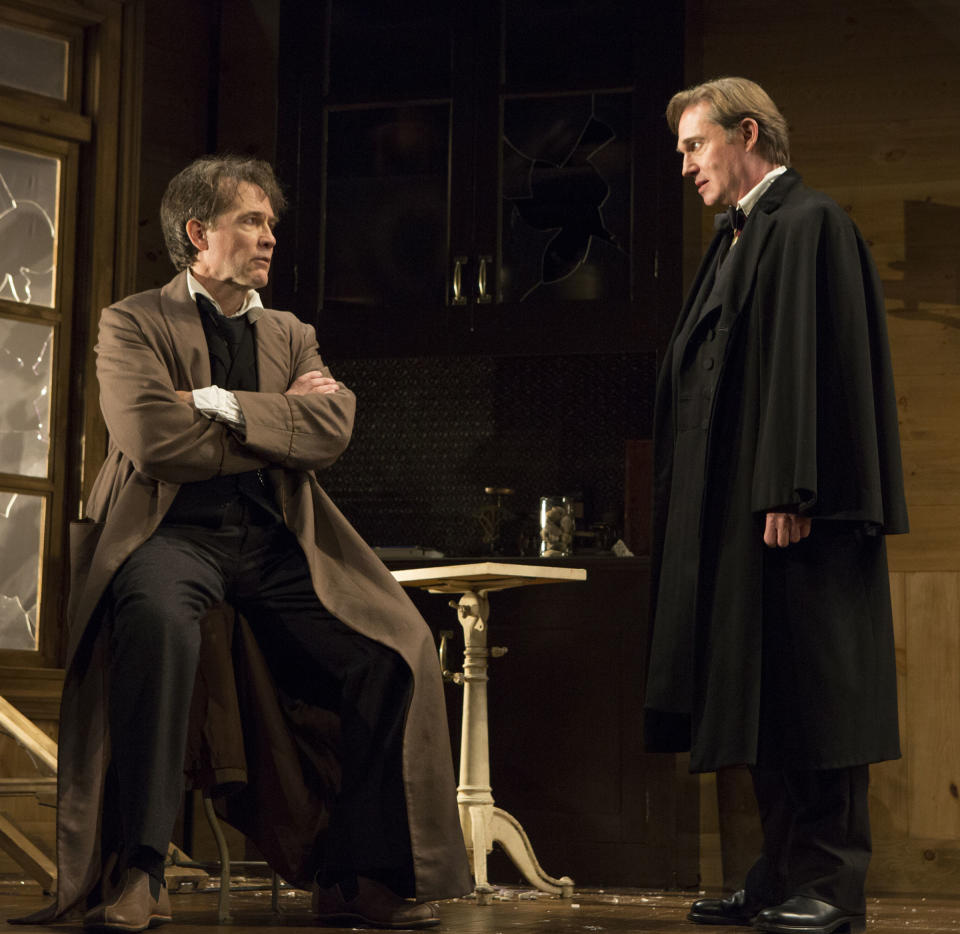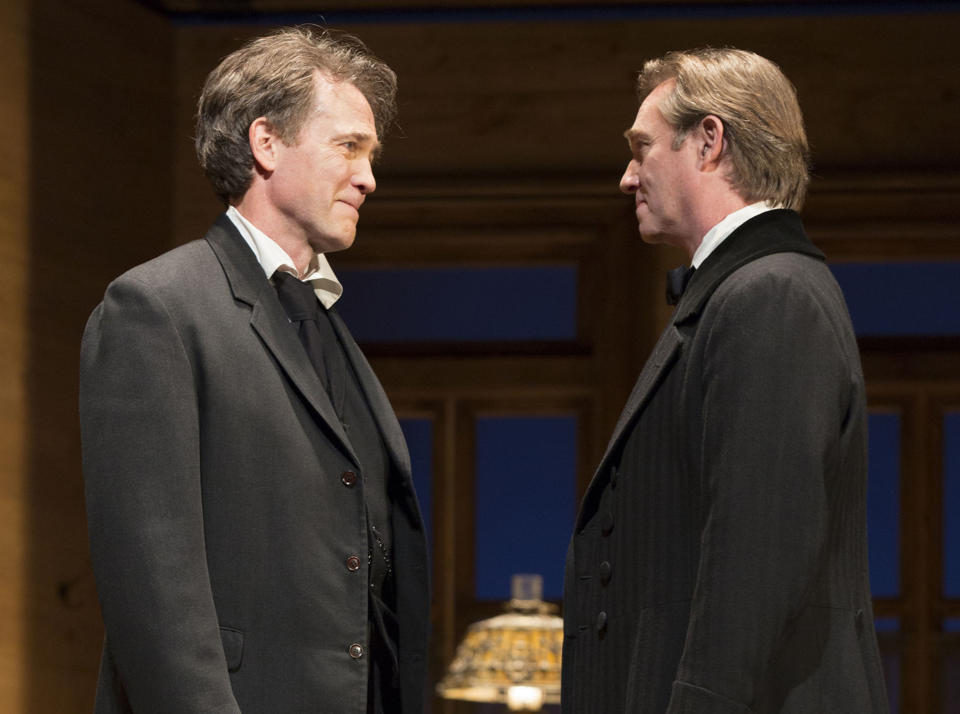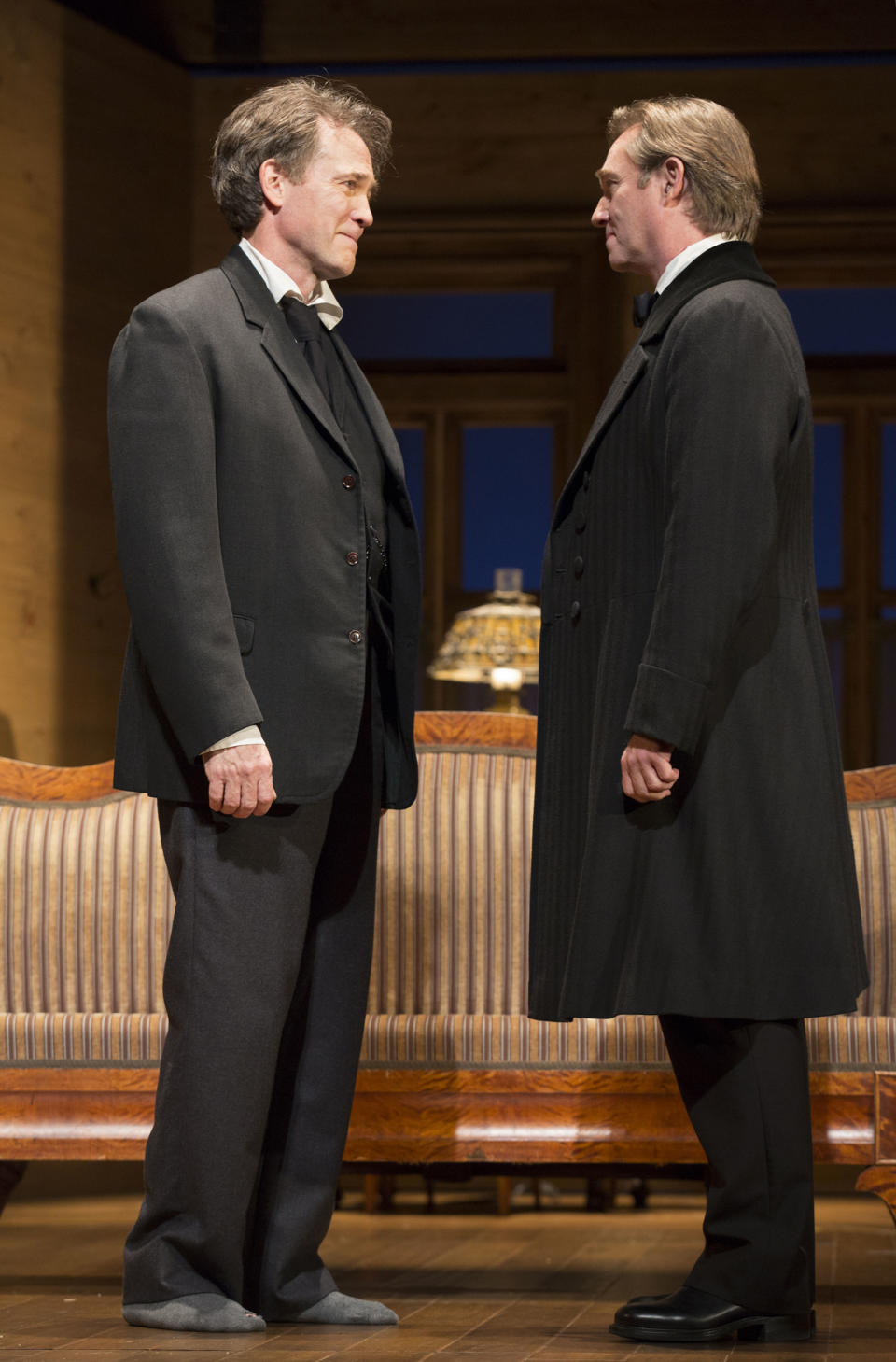Review: Great cast saves 'An Enemy of the People'
NEW YORK (AP) — You almost have to admire the devilishly intricate dilemma Henrik Ibsen creates for his hero in "An Enemy of the People." It's diabolical.
Minute by minute, the pressure piles on the shoulders of Dr. Thomas Stockmann, a rather vain scientist who has discovered that the spa town of his birth is built on toxic water. Yet this well-intentioned whistleblower is put in an untenable spot, and eventually branded an enemy of the people.
A fine Manhattan Theatre Club's production that opened Thursday at the Samuel J. Friedman Theatre starts shakily but ends as a full-throated defense of the individual.
Boyd Gaines and Richard Thomas are marvelous as the battling brothers at the heart of the play, but there are terrific turns also by Gerry Bamman, Michael Siberry and Kathleen McNenny. Director Doug Hughes paces it like a thriller, with the heat rising steadily.
In his egotistical and naive way, Stockmann expects a parade in his honor when he finds proof that the baths in his 19th century Norwegian town are a health threat. But the town depends on the tourists who flock to the baths and the mayor, who happens to be Stockmann's brother, is nonplussed by the science. Or is it sibling rivalry?
At first, Stockmann gets the support of the press — represented by journalist Hovstad (a complicated John Procaccino) — and the mainstream townsfolk — represented by a prominent citizen and printer Aslaksen (Bamman). They want to use the issue to attack the town leaders. But that plan disappears as soon as the mayor points out the economic disaster that closing the baths would entail. Public opinion, so fickle, has shifted, but Stockmann can't back down or compromise.
"I want to be able to look my sons in the eye when they grow up into free men," he says.
Watching the pendulum swing from Stockmann in control to his brother getting the upper hand is a pleasure, with four-time Tony Award winner Gaines becoming increasingly despondent and wild, while Thomas plays his character with gleeful unctuousness.
McNenny, as Stockmann's wife (and Gaines' real-life wife), is fierce in a part that burns bright but for too short a time. Her character both appreciates her husband's sense of honor but also sees the disaster his lost income and exile would bring.
"I have truth and honor on my side," says Stockmann.
"What good are they when you have no power?" she replies. But save for a few strong scenes, Ibsen puts Mrs. Stockman on the sidelines — a shame.
By now the townspeople have become a mob and that has given Hughes an opportunity to make his staging spill into the audience. For Stockmann's courtroom-like defense of the exceptional individual over the ordinary throng, Hughes has gotten five actors to occupy the theater's first row and cheer and boo. One is drunk. Democracy, Ibsen is saying, is a foul-mouthed mob.
The web of pressure relentlessly closes on Stockmann. His father-in-law, who may be responsible for the toxins, gives him an ultimatum that affects his family's financial health, and the townsfolk approach the doctor again with a scheme to make money if he will only retract his findings. His brother never relents: Blood, of course, proves less thick than sludge.
No matter, says Stockman, who keeps his sense of humor even as he fights to keep honest.
"They tore my best trousers," he says. "The first lesson of freedom fighting, never wear your favorite trousers when you go out to fight for truth and justice."
The production benefits from John Lee Beatty's spare, unfussy sets and Catherine Zuber's striking costumes, particularly the black leather trench worn by Hovstad. The palette here is plenty of grays, darks and muted colors — perfect for a grim look at morality.
Other than the acting, there's little subtlety in this play, which often feels more like a lecture. Environmentalists will find a warning about global warming and libertarians may pull out an articulate defense of individualism.
But theater-goers without a political agenda get to watch a bunch of actors at the top of their game. "The strongest man," says Stockmann at the rather overwrought conclusion. "He's always alone." Not to be rude, but this great cast proves the opposite.
___
Online:
http://www.manhattantheatreclub.com



